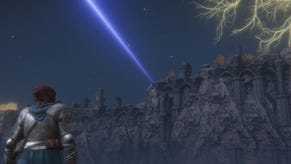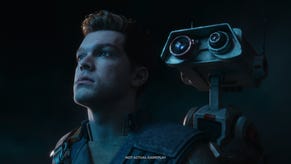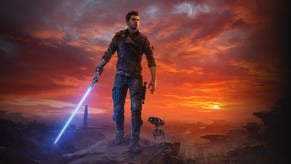Jedi: Fallen Order exists, so why was Amy Hennig’s Star Wars game cancelled?
Here’s a fundamental secret of triple-A development: you can have too many ideas.
Any truly new mechanic is frightening, an unknown that must be tested and communicated across teams of hundreds, and even then might not work out. In that context, you can see the appeal of the familiar: a cover system from another game, for instance, that demonstrably works. A certainty to cling onto in the chaos of development.
A game like Star Wars Jedi: Fallen Order is the embodiment of this philosophy - a mish-mash of ideas swiped from successful action games of the past decade. Game director Stig Asmussen has God of War 3 on his resume, and there’s plenty of developer Respawn’s own DNA on show: the wall-running, constant robot companion, and military reconnaissance could all have come from Titanfall 2.
Then there’s the combat - deliberate in pace, like Sekiro, and enlivened by smart use of time control in the style of Dishonored. But the navigation? That’s pure Uncharted, a matter of upper body strength as protagonist Cal Kestis swings from ropes and clambers up vertical surfaces. When Cal reaches the edge of a climbing point, he holds out his arm like a cyclist, indicating the direction it’s safe to jump. It’s as if he’s been a padawan under Nathan Drake, not the Jedi.
It’s the latter inspiration that’s strangest to contemplate, given EA’s recent history. Just under five years ago, Nathan Drake’s writer Amy Henning joined the publisher to work on a single-player Star Wars game, codenamed Ragtag. Set between episodes IV and V, it would play on the same sense of pulp adventure that Uncharted has - but with the tone steered towards Harrison Ford’s Han Solo, rather than Indiana Jones.
Then EA shut down Ragtag developer Visceral in October 2017. There had been problems with the project: a Kotaku report cited clashes between Hennig and the design team, difficulty sourcing enough staff to meet the game’s ambition, and the challenges of the Frostbite engine that also plagued Anthem. But publicly, EA put the move down to “fundamental shifts in the marketplace”.
“It has become clear that to deliver an experience that players will want to come back to and enjoy for a long time to come, we needed to pivot the design,” said EA’s executive vice president of the time, Patrick Söderlund. “We are shifting the game to be a broader experience that allows for more variety and player agency.”
Ragtag was handed to EA’s Vancouver studio to reconfigure as an open world game - one which, presumably, would keep a Force Chokehold on players long enough that they could be squeezed for microtransactions. The implication was that Ragtag had been born out of time, unsuited to a new world of games-as-a-service, loot boxes, and player retention strategies.
Which makes the reveal of Jedi: Fallen Order, a linear action-adventure game with Uncharted overtones, frankly baffling. You could easily believe that Ragtag was the game showcased at EA Play a couple of days ago, were it not for the fact the project no longer exists. The two games even share similar sequences. An early demo of Amy Hennig’s game had shown Ragtag’s cast chased by an AT-ST - and sure enough, there in Fallen Order’s sizzle reel, a walker sends Cal scrambling.
This about-turn has been reflected in EA’s public messaging about Fallen Order, too. “No microtransactions,” the publisher wrote through its Star Wars Twitter account. “No loot boxes. And no, we won't be adding them. A single-player Star Wars story for those of you who are ready to become a Jedi.”
Hennig herself told Eurogamer that the tweet was “odd,” given the statement Söderlund had made about her own game less than two years earlier. Then again, Söderlund is no longer with the company - EA has undergone significant management turnover in the meantime. And more than that, the marketplace he talked about has shifted again.
EA’s own Star Wars Battlefront 2 proved a lightning rod for frustration over loot boxes, bringing on a backlash so severe it caused the publisher to reconsider its monetisation methods. Then, Ragtag's open world successor was cancelled. Suddenly, linear single-player games are in vogue again - a chance to win back favour with a gaming public that once voted EA the Worst Company in America.
It’s very possible the EA of today would have published Ragtag. Then again, perhaps its commonalities with Fallen Order would have spelled its downfall anyway. A decade ago EA cancelled LMNO, a promising first-person parkour game from Steven Spielberg and Thief designer Doug Church, after concerns it was too similar to Mirror’s Edge.
What’s certain is that Ragtag was a victim of bad timing and an industry in flux. The rogues Amy Hennig writes about have always relied on a healthy dose of luck, but in this case, their handholds crumbled beneath their fingers. Fallen Order’s Respawn, meanwhile, now have studio head Vince Zampella on EA’s executive board. Perhaps the best way to protect a game from corporate politics is to participate in them.












